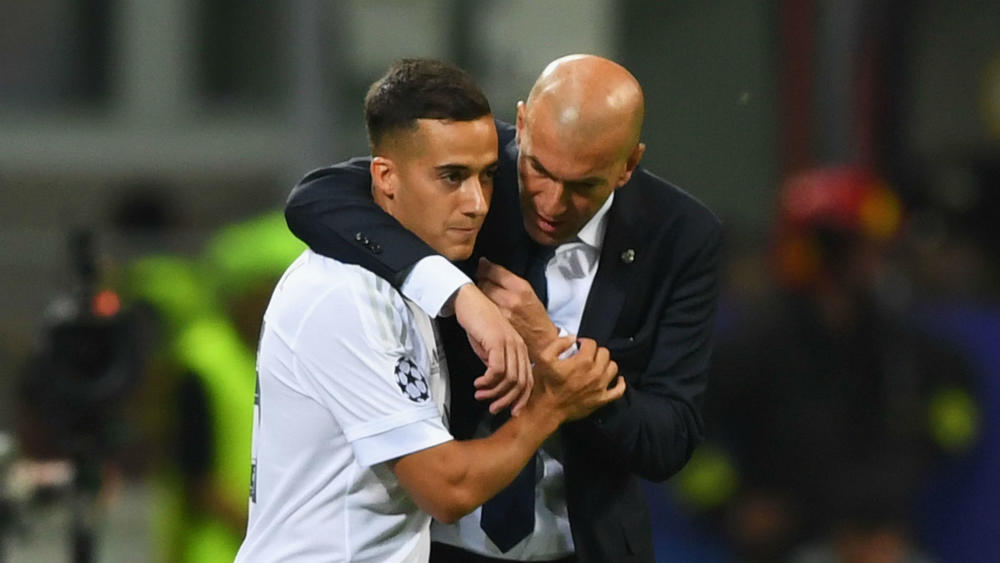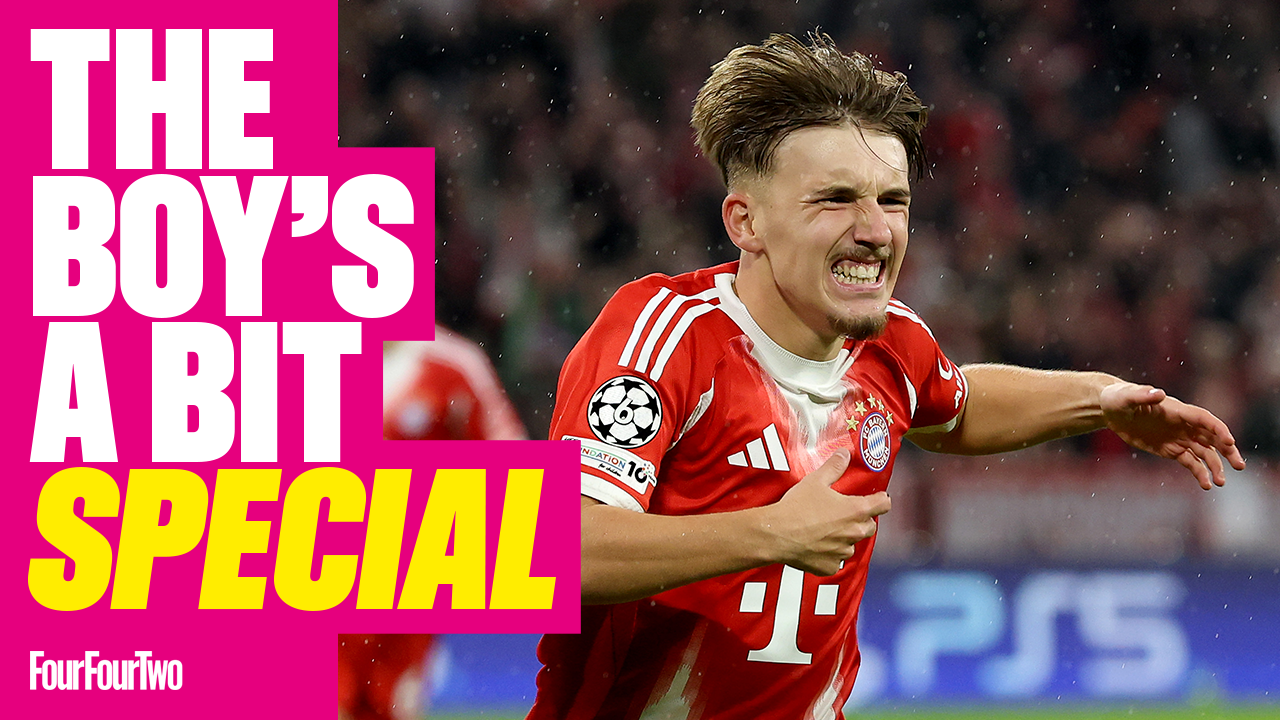Zidane and Luis Enrique tangled in El Clasico's identity politcs
Claims of Real Madrid becoming more like Barcelona or vice-versa are inevitable in a rivalry that sustains two footballing superpowers.

The best features, fun and footballing quizzes, straight to your inbox every week.
You are now subscribed
Your newsletter sign-up was successful
Want to add more newsletters?

Five times a week
FourFourTwo Daily
Fantastic football content straight to your inbox! From the latest transfer news, quizzes, videos, features and interviews with the biggest names in the game, plus lots more.

Once a week
...And it’s LIVE!
Sign up to our FREE live football newsletter, tracking all of the biggest games available to watch on the device of your choice. Never miss a kick-off!
Join the club
Get full access to premium articles, exclusive features and a growing list of member rewards.
A stable side playing with assurance and calm to lead rivals whose array of expensively assembled parts are failing to produce the expected return.
This is a familiar narrative for El Clasico in recent years but, as Barcelona prepare to host their sworn enemies at Camp Nou on Saturday, Zinedine Zidane's Real Madrid have flipped the script.
During his swashbuckling playing days, Zidane was the most lavish recruit of Florentino Perez's "Galacticos" period, with a transfer fee that stretched Madrid's elastic balance sheets more than Luis Figo, Ronaldo or David Beckham.
Perez's label for his flawed method of team building was "Zidanes y Pavones" – a pledge to blend his global stars with unheralded homegrown players such as centre-back Francisco Pavon, who handily provided youth and civic authenticity without putting too big a dent in a hefty wage bill.
An imbalanced squad and a rotating-door policy on coaches left Madrid without a single major honour between 2003 and 2007 but it seems some lessons were taken on board.
Working under Perez in the latter's second presidential spell, head coach Zidane has regularly called upon his own band of "Pavones" to lead the capital club into El Clasico in fine shape.
With Gareth Bale out, he is likely to call upon the reliable, unflashy Lucas Vazquez to fill the void. Vazquez's fellow Castilla graduates, Alvaro Morata and Marco Asensio, returned to Madrid during the close season following jaunts away at Juventus and Espanyol respectively.
The best features, fun and footballing quizzes, straight to your inbox every week.
These players are competing on an even-footing with the likes of Isco and James Rodriguez - high-profile signings of the recent past who Zidane has no qualms over benching. He hopes to welcome no-frills Brazilian holding player Casemiro back to his starting midfield against Barcelona.
81.8% - Zinedine Zidane is the Real Madrid manager with the highest rate of wins in La Liga history (81.8%). HintNovember 26, 2016
Necessity is the mother of invention to some extent. Madrid have a two-window FIFA transfer ban starting in January, but Zidane has at least shown Perez he should not fear an enforced closure of his purse-strings.
Indeed, Barcelona might caution that the real challenge comes once the ban expires.
The defending LaLiga champions were hit with the same sanction by world football's governing body in relation to breaking rules surrounding the registration of youth players in 2014. They won the title in each of the seasons touched by the ban.
Free to flex their muscle and bolster boss Luis Enrique's hopes of three in a row, the results have been mixed at best so far.
Paco Alcacer's role as the fourth member of a prolific trio has proved as successful as it sounds; Arda Turan has enjoyed a more productive second half to 2016, even if the same cannot be said of Aleix Vidal; Andre Gomes has been on the winning side in two of his four LaLiga starts.
For all the new faces in defence and midfield, a central feature of Barca's season has been the fitness struggles of Gerard Pique and Andres Iniesta - posing tough questions for the present and a future when Barca's greatest generation all finally leave the stage.
Failing to solve an approaching problem with money swilling in from Qatari sponsorship as tax fraud allegations continue to swirl around the acquisition of a star player do nothing to quell claims of an identity crisis at Barcelona. Mes que un club?
6 - Barcelona haven't found themselves 6+ points below the league leaders since Jose Mourinho's Real Madrid won the title in 2012. Delicate November 28, 2016
Shape-shifting has always been a part of football's most famous rivalry, where symbolism and narrative can often blur reality. Barcelona are the club that develops elite youth talent to the envy of their rivals, but Madrid won the 1966 European Cup with a team of 11 Spaniards.
The side that bloomed so perfectly under Pep Guardiola in 2008-09 will be Barcelona's most celebrated for years to come, although Madrid's Quinta del Buitre - the homegrown core inspired by Emilio Butragueno's dazzling attacking skills - played beautiful football and dominated Spain in the 1980s.
Then came Johan Cruyff's "Dream Team". Barca's ultimate superstar player became the superstar coach, with the help of similarly expensive and magnificent imports such as Hristo Stoichkov and Romario.
Talent nurturers Barcelona have always spent big, while big spenders Real Madrid have always nurtured some of Spain's finest. Stubborn battle lines add to El Clasico's allure but these two foes have more in common than they might like to acknowledge.
Since Alfredo Di Stefano controversially ended up at Madrid ahead of Barca in 1953, the clubs have regularly contested transfer tugs of war with a golden rope. This will inevitably continue when the ban expires.
Forbes ranks them as the most valuable clubs in the world, with Madrid's £2.52billion pipping Barca's £2.46bn. They operate on a different level to anyone else and winning is non-negotiable.
Luis Enrique dare not lose on Saturday. Not because of how Zidane is subtly moulding Madrid but because, if Barcelona lose, they will be nine points behind with a title defence in tatters.
The victors and the vanquished. In this rich, complex, irresistible rivalry those statuses will always matter above anything else, regardless of the means by which they arrive.
 Join The Club
Join The Club










